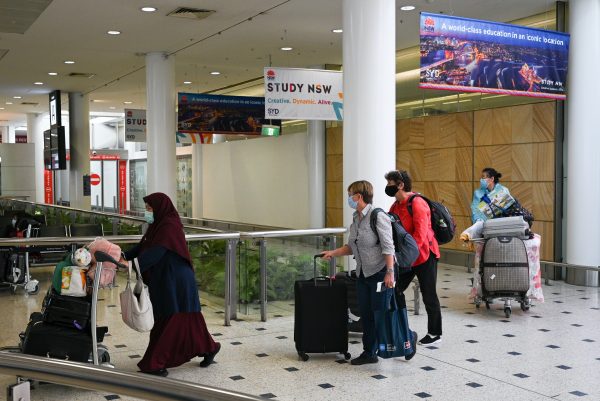With coverage limited to persons in Australia, the census excludes Australian citizens and residents overseas on census night. The consequences of this have never been starker, with globalisation contributing to a burgeoning diaspora and Australia’s pandemic borders leaving tens or hundreds of thousands of Australians unwillingly abroad. While government policies — including social welfare, tax, housing and investment — have long distinguished between residents and non-residents, the divide in outcomes is uniquely involuntary and historically unprecedented under pandemic measures.
From the statistician’s perspective, a focus on the ‘population present’ rather than the ‘legal’ or ‘economic’ population reflects mostly practical considerations. Beyond the census — which relies on identifying households — Australia counts arrivals and departures but does not routinely retain the addresses of Australian households abroad (outside of voluntary registrations with government agencies). This not only presents challenges to the statistician but critically constrains policymakers attempting to support those overseas during a crisis.
There is precious little information on the size and distribution of Australia’s diaspora, let alone its census-equivalent characteristics. United Nations international migrant stock estimates for 2019 count around 577,000 Australians among overseas populations, with about half in Europe, a fifth in North America and almost 14 per cent in Asia. This undoubtedly represents a significant undercount, with overseas census coverage, citizenship definitions and dual citizenship all imparting a downwards bias. Anecdotally the diaspora is believed to be 1 million strong, but this number has increased less than one would expect from a 2004 estimate of between 760,000 and 900,000.
Despite crossing into statistical anonymity, Australians living or working overseas and intending to return within six years retain non-compulsory voting rights. At the last federal election in 2019, less than 62,000 people exercised this right, with this number including short-term travellers. That voting rights extinguish with non-residency is itself a barrier to diaspora engagement — one that goes together with the limited obligations governments owe overseas citizens. Pandemic border restrictions have highlighted Australia’s missing bill of rights and the unenforceable international commitments on which fundamental rights rely.
Australia’s handling of COVID-19 is skewed along ‘population present’ lines at the expense of Australians abroad. Travel bans, arrival caps and hotel quarantine are effective containment measures, but they prioritise the welfare of residents over non-residents. Government financial support cushions the blow for residents. Non-residents face quarantine charges, inflated airfares and other expenses resulting from policy uncertainty and a reluctance to expand quarantine capacity. The vaccination rollout similarly excludes non-residents. While governments release around-the-clock updates on resident cases and casualties, it took almost 18 months and a Freedom of Information request for a one-off, incomplete estimate of overseas Australian deaths from COVID-19.
The crisis has highlighted the one-directional nature of diaspora engagement. Australian governments since around 2002 — when dual citizenship was legalised for non-naturalised Australians — have sought to harness ‘diaspora capital’, recognising the beneficial role overseas Australians play as brand Australia ambassadors and facilitators of trade and investment. However, increased recognition of the benefits of a diaspora has not meaningfully translated into greater interest in or obligations towards non-resident Australians. Rather, it appears to have further exaggerated misperceptions of self-sufficiency and privilege. These misperceptions are difficult to counter with the statistical cupboard bare.
Treating the diaspora as collateral damage rather than addressing gaps exposed by the pandemic will be a costly misstep for Australia’s regional and global reputation. Australia is already taking a monumental hit by locking out international students, breaking the other arm of its ambassadorial armada. Overall immigration remains indefinitely restricted. The screws were tightened on inward foreign investment last year, whereas many Asian countries adopted a facilitative stance. Australia’s pandemic response has had a nationalistic framing with isolationist undertones that has left the diaspora on the outer and deepened the diplomatic deep freeze with China, its largest trading partner.
Australia’s largely laissez-faire emigration policies are lagging behind more active countries in the region. The Philippines, Pakistan, Bangladesh, Sri Lanka and China support emigrant workers through a combination of dedicated agencies, registration and deployment, pre-departure training and orientation, bilateral agreements securing rights and legal aid. Some additionally offer welfare support or offer preferential investment or return migration schemes. Australia’s diaspora is more educated than those of its neighbours, but arguments against replicating more active and generous policies are ideological, not factual. They must be because there are no statistics on which to base them.
The pandemic looms as a watershed moment for Australian identity, as a country built on migration and enriched by internationalisation pursues a health response that has upturned commonly understood conceptions of citizenship rights. Developing a census-equivalent for the Australian diaspora would help reinforce inclusive citizenship and provide a vital input to future diaspora engagement policies.
Stewart Nixon is a Research Scholar at the Crawford School of Public Policy, The Australian National University.


Excellent analysis and proposal for an expat census. While Austrade and DFAT have periodically tapped expats at their convenience, policy has been remarkably blind to the Australian diaspora. Perhaps it reflects the self-congratulatory and parochial notion that ‘Australia is the greatest place in the world’ and wonder at why people would want to live anywhere else. Certainly Australia’s migration regime, especially residency requirements for retaining PR status for applying for citizenship, seems locked in an early postwar notion that people came, liked it, and stayed. Australian-born expats seem to have been imagined as just young sojourners who would mature and come home. The settler society mindset seems to predominate still, and anybody who would reside abroad becomes a bit suspect as somehow ungrateful and not committed fully to the national project. Australia’s ready slide into border prolonged border closures – external and internal – has revealed a parochial defensiveness that many of us naively hoped Australia had grown out of. Stewart Nixon has given us a fresh perspective and in doing so has highlighted a profound oversight in our historical and policy analysis.